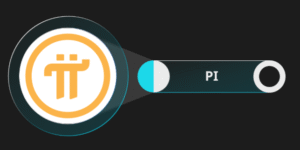$BTC $ETH #CreditCardDebt #USDebt #FinancialHealth #PersonalFinance #EconomicImpact #DebtManagement #USNews #FinancialEducation #ConsumerSpending
How Does Ignoring $1.18 Trillion in Credit Card Debt Benefit Americans?
In the latest US news, a staggering statistic has surfaced, revealing that Americans now shoulder a monumental $1.18 trillion in credit card debt. This figure not only underscores a growing consumer confidence but also highlights a potentially dangerous disregard for fiscal responsibility. As spending habits swell, the implications of such substantial debt raise crucial economic and personal finance questions.
The Psychology Behind Debt Ignorance
Fundamentally, many Americans may find it psychologically easier to overlook their burgeoning debt than to confront it head-on. Ignoring the mounting figures can provide a temporary escape from the stress of financial obligation. However, this avoidance strategy can lead to greater financial strain in the long term. Engaging with one’s debt, though uncomfortable, is crucial for maintaining financial health and stability.
Short-Term Gains Versus Long-Term Pains
In the short term, ignoring debt enables continued consumer spending, which in turn fuels economic activity. This cycle of spending and lending plays a pivotal role in the dynamism of the US economy. Yet, this comes at a cost. The long-term consequences of high credit card debt include increased interest payments, reduced savings, and potentially, financial ruin.
Impact on Credit Scores and Financial Freedom
High levels of credit card debt are inversely related to credit scores. A lower credit score can restrict access to financial products and opportunities, such as favorable loan terms or housing options, thus limiting financial freedom. Additionally, with more income directed towards paying off debt, consumers have less to save or invest. This situation can alter life choices, impacting everything from family planning to retirement.
Strategies for Managing and Overcoming Debt
To combat high credit card debt, financial education is pivotal. Understanding the basics of debt management, such as the importance of paying more than the minimum payment and prioritizing high-interest debt, can make a significant difference. For those interested in exploring more about financial strategies, visiting financial markets can provide valuable insights and resources.
Transitioning from ignoring debt to managing it effectively requires a change in mindset and habits. Tools like budgeting apps and credit monitoring services can aid in this transition, providing regular updates and management tips. Additionally, considering alternative financial strategies through cryptocurrency investments might offer new ways to diversify income streams and reduce reliance on credit.
Conclusion: The Road to Financial Health
Ultimately, the road to financial health involves facing financial realities head-on, no matter how daunting they may seem. While Americans continue to struggle with a collective $1.18 trillion in credit card debt, recognizing and addressing the issue is the first step towards recovery and financial stability. With the right tools and education, individuals can navigate their way out of debt and towards a more secure financial future.










Comments are closed.